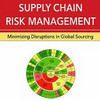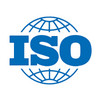 The other day I came across a very interesting PhD dissertation by Erik Sandberg from Linköping University in Sweden, declaring that Supply Chain Management perhaps is more of a myth than a reality in today’s business world. That is a very bold claim, but after reading the dissertation I must give the guy some credit. I think he could be right.
The other day I came across a very interesting PhD dissertation by Erik Sandberg from Linköping University in Sweden, declaring that Supply Chain Management perhaps is more of a myth than a reality in today’s business world. That is a very bold claim, but after reading the dissertation I must give the guy some credit. I think he could be right.
Top Management Support
In his dissertation, Sandberg contends that
Supply chain management (SCM) has been discussed by researchers as well as business practitioners for more than two decades now, but still surprisingly little of this philosophy can be seen in today’s business practices.
One important enabler for taking the SCM philosophy from theory into practice is top management support. The purpose of his dissertation is therefore
to describe and explain the role of top management in a company’s supply chain management practices.
A Logistics Survey
Much of his work is based on a survey of 482 logistics managers at Swedish manufacturing companies, resulting in the follwowing findings:
- existing collaborations are mainly performed at an operational level in the companies,
- there are differences in the focal company’s attitude and behaviour depending on if the collaboration partner is situated downstream or upstream in the supply chain,
- increased intensity in the collaboration results in more positive effects,
- top management involvement is an important driver for increased intensity of the collaboration, and
- top management involvement in a dyadic collaboration is an important driver for increased collaboration with supply chain members on the other side of the focal company.
These results, he says, clearly indicate the importance of top management involvement for successful supply chain collaboration, both when it comes to increased intensity in existing collaborations and in creating.
A Management Survey
Sandberg also conducted in-depth interviews with 15 top management members resulting in a more thorough explanation of top management’s role in a company’s SCM practices. Six archetypes of this role are presented:
- the supply chain thinker,
- the frame setter,
- the process designer,
- the relationship manager,
- the controller, and
- the organiser for the future.
Here, he says, top management, in accordance with a traditional management style, applied what Mintzberg calls a “deliberate emergent” management approach, meaning that they focus on defining the strategic boundaries, while not interfering with day-to-day logistics operations.
Summary conclusion
What Sandberg comes down to is that management appears to be good in management, but lack the necessary focus on supply chain activities, while logistics handles operations as best they can, but are in dire need of strategic directions from the management level, which could give the comapny
a sustainable competitive advantage vis-à-vis its competitors
So basically, the two, management and logistics, are living side-by-side, more or less unaware of that they need to intersect. I find this a very strong contention, and I look forward to reading more from Erik Sandberg.
Reference
Sandberg, E. (2007). The Role of Top Management in Supply Chain Management Practices. Unpublished PhD Dissertation, Linköping University, Linköping.
Link
- Linköping University – Download the dissertation
Related
- husdal.com: Is there a Nordic approach to logistics?












